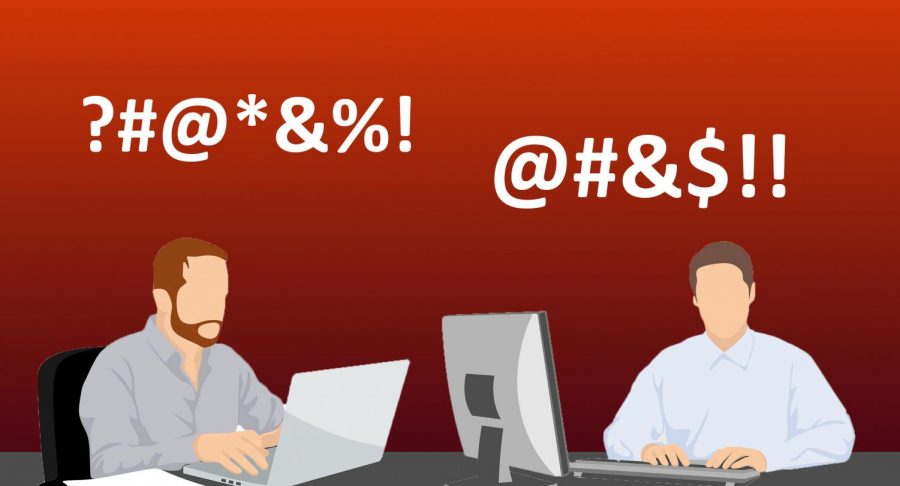Politics need more education, less sensation
Media focus on political drama distracts from candidates’ proposed policies
July 17, 2019
The polarization of politics in the U.S. has led to a highly inflammatory and discord-filled climate. New ways of consuming media make politics a powder keg. We need to put down the matches and learn how to navigate and disassemble this environment.
The incendiary nature of political discussion in the U.S. is in part to this technological change, said Travis Ridout, WSU professor of government and public policy.
“Part [of it] has to do with news media and access to clearly partisan media that tries to get us angry,” Ridout said. “The rise of the internet has created filter bubbles that affect our world view.”
Filter bubbles are the specific, narrow viewpoints expressed on a person’s media feed caused by social media’s tendency to show users more of what they like and agree with. However, when your feed only caters to your own opinions, it is difficult to look at the world objectively.
Media consumers have always been drawn to more sensational stories, ones that cause outrage, have a clear enemy and bring differences to the forefront. Yet with the rise of filter bubbles online, this sensationalism is becoming more directed and intense. Combined, these two forces make it easy to get extreme and react inherently negatively to opposing views, especially political ones.
It can be easy to get caught up in sensationalism and winning debates. However, this detracts from the discussion of issues directly affecting the people of the U.S.
Ridout pointed to heavy focus by the media and general populace on the presidential debates as an example of incendiary politics. Personality and drama are often placed above policy declarations and nuances.
“A horse race focus is not good. Unnecessary vying can drown out discussion about actual issues,” he said. “Part of the increased passion has been because election results have been so close. Starting in the 2000s, presidents have been elected by a few percentage points.”
This type of narrow margin between candidates and filter-bubble-fueled policy passion leads to debates filled with arguments over policy declarations.
For individuals, however, there are ways to dampen the flames. One important step that people can take is becoming media literate. Know what filter bubbles are and try to break out of yours.
Search for and consume a wide range of media from both sides, especially those you disagree with. Look for fact-based, ethical, original reporting from reputable sources. If you’re only getting your news from Facebook, try to find some good podcasts to listen to or look up the news of the day yourself.
Most of what you can do is to form your own balanced and informed views. Learn how to digest media in a healthy way, because in a horse race it’s not the horses that really win.
Rage-fueled debates and politicking can only do so much. Reading explosive news and getting into online arguments does not actively solve anything.
Going out and voting for the things you believe in, protesting, volunteering, raising money or even just posting documented sources and information about issues are the things that make a difference.
Call people out on things you’re deeply passionate about with the intent to educate, rather than to fight. Maybe take time to have a real discussion with your ignorant uncle instead of just muting him on Facebook.









